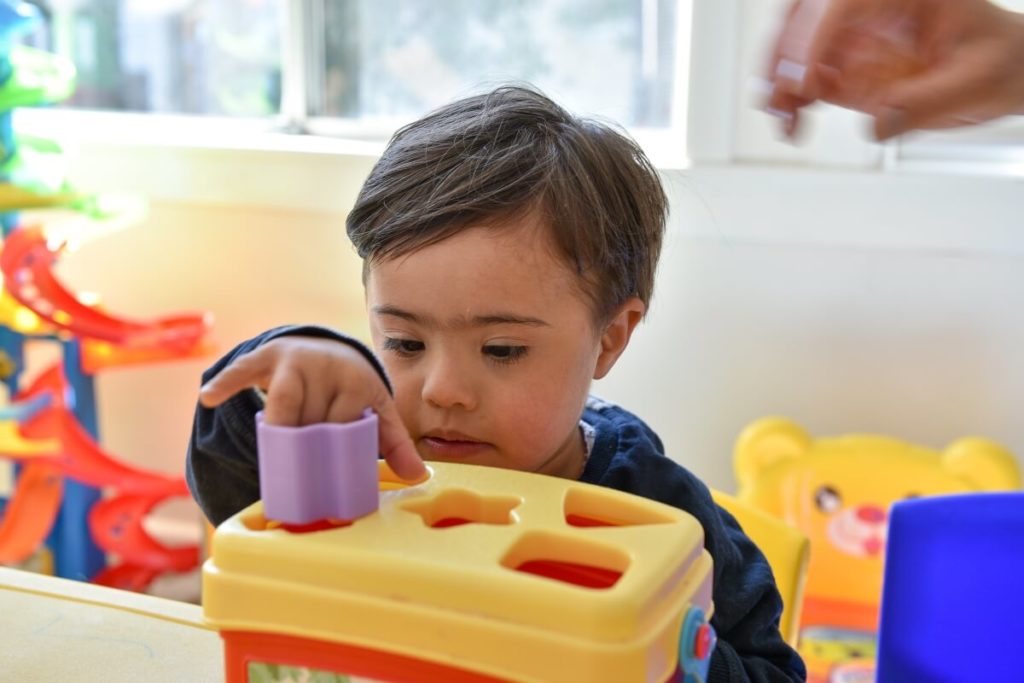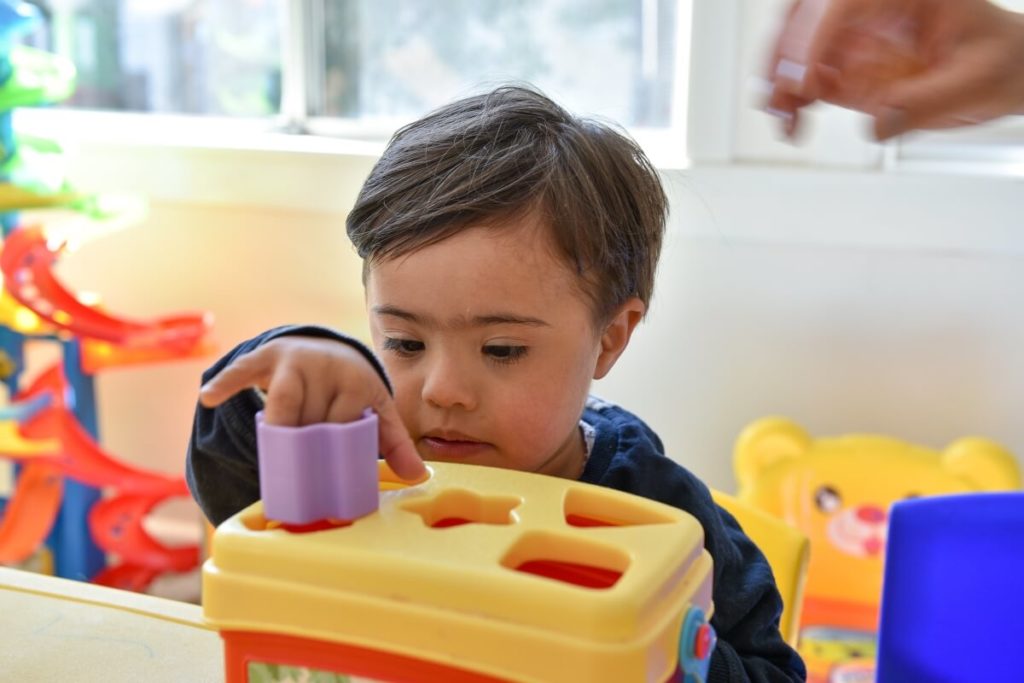Children, Play & Development
Supporting your child as they learn how to play and have friendships is good for all children, including your child with a disability.
Why play is important for child development
Playing is essential for your child’s brain development and one of the most important things you can do with your child. Play and friendships help your child with disability learn all kinds of skills and abilities, as children are fantastic teachers of other children. Playing with other children is great for helping your child feel good about themselves.
Play also helps your child:
- build confidence
- feel loved, happy and safe
- develop social skills, language and communication
- learn about caring for others and the environment
- develop physical skills.

Understanding and Supporting Children with Additional Needs through Play
The way your child plays and makes friends will change through the early years.
Solitary play is when children play alone and don’t pay attention to what others are doing. Parents can keep the play short to begin with, so your child can finish an activity quickly and feel successful. For example, you might choose a simple jigsaw puzzle.
Parallel play is when children play alongside each other and might use the same or similar toys as those around them. Parents can encourage your child to play at an activity − like trains − on their own but beside other children and possibly imitate the other children’s play while they are playing on their own.
Associative play is when children make and share things, give each other things, or join in with what other children are doing. Parents, you can encourage your child to swap things while still playing on their own – for example, swapping block colours or shapes while still constructing with other children.
Cooperative play is when children join together to do activities and work together to finish something. Cooperative play involves communication skills and can become complex. Parents can help your child by using clear instructions to make rules of games simple with help from social stories and visuals.
The different types of skills that can be learnt through play
Children learn different things from play at different ages and stages. The more chances your child has to play, the more they can learn as they discover, create, improvise and imagine.
Skills developed through play include:
- Social and Emotional Skills. Children form social groups as they play with other children. It helps your child learn about sharing, cooperating, working out what other people are feeling and making friends with other children.
- Communication. By being with other children, your child can learn new ways of talking, listening and communicating. They can hear and see how other children ‘use their words’ to say what they want and need when they’re together. And they can practise using their words too. This will help your child to get along better with others.
- Physical development. Play can encourage your child to join in with fun social physical activities like running, jumping, throwing a ball, climbing or building things. Getting involved in physical play can improve your child’s confidence, muscle tone and movement skills.
- Thinking (cognitive) skills. Through play, your child will learn to focus, follow instructions, try to work out problems and be creative. This will become more complex as their play develops and will help them in learning environments.
Parents Role in Play with your Child with Disability
To play well with others, children need to be able to share, take turns, listen and be sensitive to other children’s feelings. You can help your child practise these things in your everyday play and communication together.
Your child learns a lot from watching how you talk to, and act with, other people. This is called modelling. When you talk to people, you can model listening, sharing, compromising, seeing things from other people’s points of view and showing empathy. For example, you can say things like, ‘Yes, let’s do it that way’ or ‘I don’t understand what you mean’.
You can help your child learn how to play through:
- playing board games or interactive games where you have to take turns
- practising to wait their turn. You can use prompts to remind to wait. For example, a wait card or just put your hand up to remind.
- read books with your child on play situations, or make Social Stories™or drawings of what might happen in a play situation. It can also help to talk with your child about how to deal with these situations.
- choosing activities that give your child the choice of playing alone, alongside others or together. Some ideas include painting and drawing; blocks and construction like Duplo or Lego; musical instruments; imaginative or dramatic play; outside play, like going for a walk.
Things won’t always go according to plan. If you can make playing with other children as fun and enjoyable as possible, your child will probably want to do it again. Playing with other children takes physical and emotional energy, so your child might need to spend time alone after a big play session.
Supporting Play at EarlyEd
EarlyEd provides a variety of services that encourage and enable play opportunities. Cubby House Toy Library has a large variety of toys that can support your child’s development. Experienced early intervention staff are on hand to assist in finding the right toys for each child. You can read more about EarlyEd’s Cubby House Toy Library here.
EarlyEd also runs a number of playgroups across Northern and Western Sydney that meet on a weekly basis. These playgroups are specifically designed for families of children with disability or where there are concerns about their development. Find a playgroup near you.
Belinda Hassarati – Special Educator and Practice Leader (Early Childhood) at EarlyEd
Belinda has 25 years of experience in the early childhood profession with 10 years’ experience in early intervention. She has worked with babies, toddlers, pre-schoolers and school aged children and their families in a range of services as well as in group and individual settings.
References:
- http://raisingchildren.net.au/articles/disabilities_play_and_friendship.html
- BELONGING, BEING & BECOMING The Early Years Learning Framework for Australia, Produced by the Australian Government Department of Education, Employment and Workplace Relations for the Council of Australian Governments. © Commonwealth of Australia 2009

